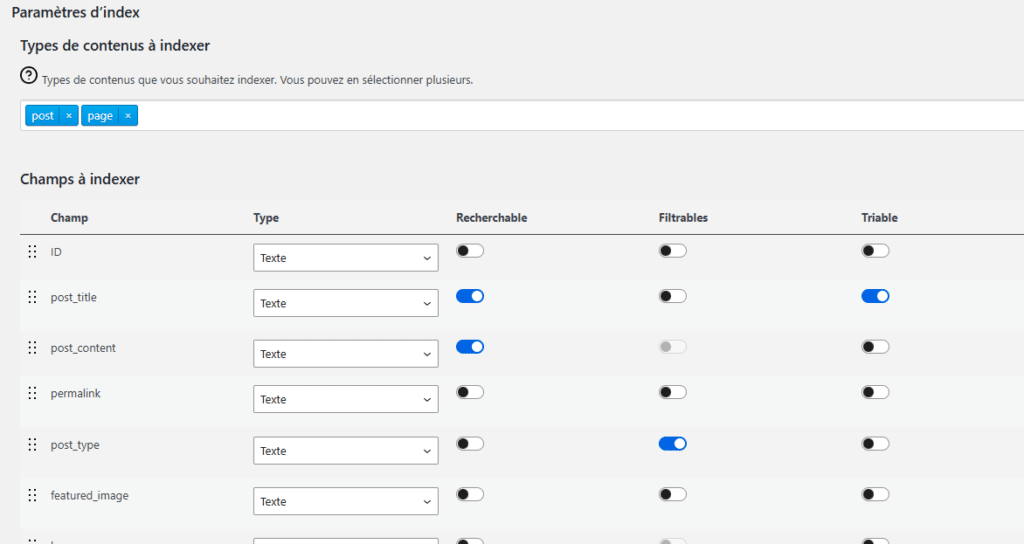With Findstr, you can easily create custom WordPress indexes to make search on your site smarter. You choose which fields to index, their weight, and which content to include or exclude. The result: a fast, accurate WordPress search engine perfectly tailored to your content.

Build custom indexes for each content type
Findstr gives you the freedom to create custom WordPress indexes exactly as you need. You decide which fields matter most and which content should appear first. This way, your search engine highlights the most relevant content and enhances your users’ experience.


Easily exclude irrelevant content

With Findstr, you can easily exclude WordPress content types that shouldn’t appear in search results. Whether it’s posts, pages, or custom post types, you control what your search engine considers. Your results stay fast, lightweight, and accurate.

Intuitive management via the WordPress dashboard
Findstr’s admin console makes managing custom WordPress indexes simple and intuitive. You can create, edit, or delete an index in just a few clicks, without touching any code. Even without technical skills, you provide your users with a smooth and efficient search experience.

WordPress Search Experts





Frequently Asked Questions
Yes, you can upgrade your license at any time, and this can be done individually per INDEX. Simply click the Upgrade link in your account area and pay the price difference. This upgrade is not a renewal — your license will still expire on the same date.
Findstr is compatible with WordPress version 6.2 and above, as well as PHP 7.4 and later versions.
FacetWP does not natively provide text-based search. It is mainly focused on filters and requires an additional plugin like Relevanssi for full-text search, whereas Findstr handles both scenarios.
Additionally, FacetWP relies on WP Query to execute its filters, which runs through PHP, while Findstr uses JavaScript directly without using server resources.
Yes, Findstr allows you to create content catalogs (listings) either via code. Our team is currently working on implementing Gutenberg blocks to make displaying content catalogs easier.

